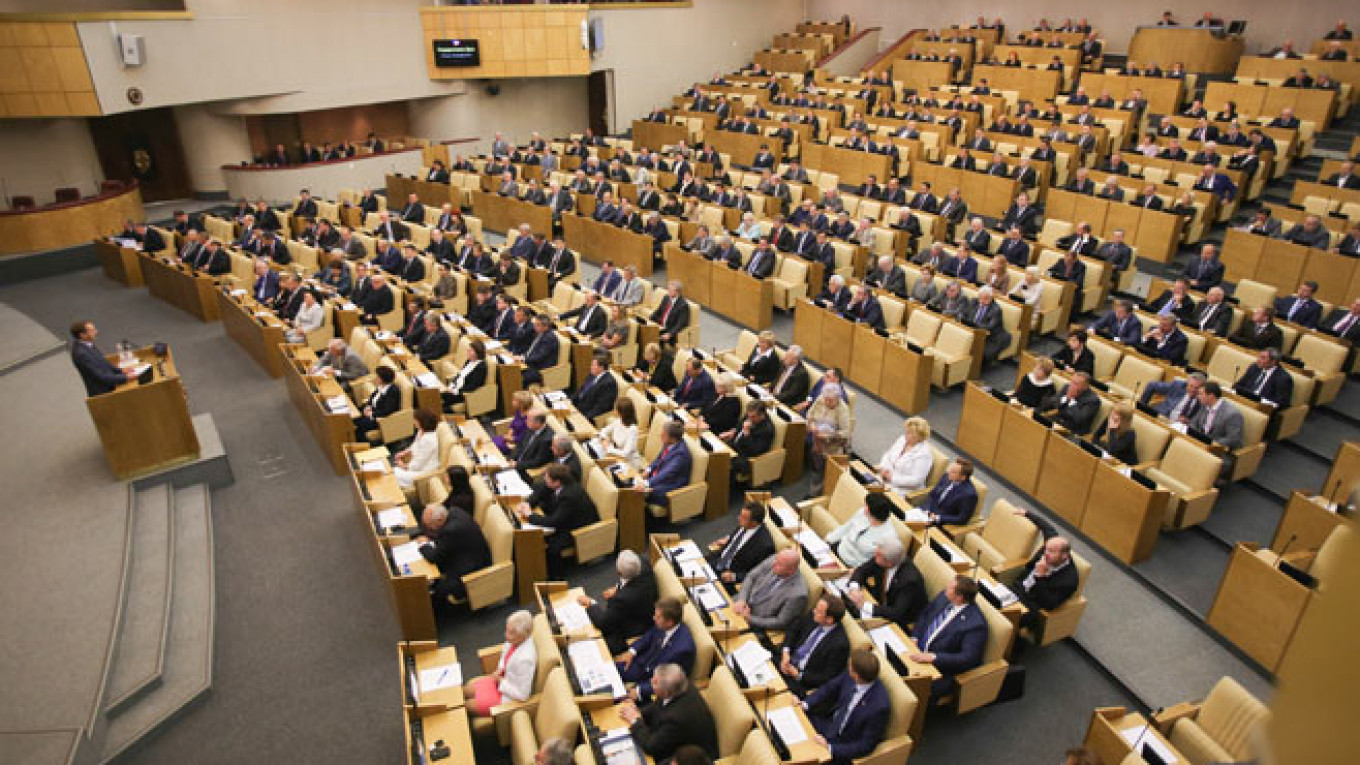More legislative news coming after the State Duma retired for its summer recess provides yet another reminder that laws in Russia are anything but permanent.
The Culture Ministry spoke out in opposition to the rule prohibiting noncommercial screenings without a distribution certificate. As it turned out, one of the provisions of the much-heralded law banning certain swear words made it practically impossible to hold film festivals.
The Finance Ministry, meanwhile, significantly relaxed the requirements for payment systems operating in Russia, thus weakening the law that sought to establish a national payment system. As a result, Visa and MasterCard need only find a Russian partner in order to circumvent the law and avoid paying a hefty security deposit.
Legislators will likely make changes to recent amendments to the personal data law, which, if enforced to the letter, would have made it impossible to travel abroad. A recent law creating a gambling zone in Sochi will also come under review because it contradicts an earlier law that created a similar zone in Azov.
Only government officials will know the final results of all these "adjustments" after a series of upcoming meetings.
All of this proves that purely prohibitive laws are fragile at best. Yes, such laws can have the desired effect of disabling or even destroying the NGOs, independent monitoring agencies and other institutions that government leaders most fear. But the laws often change if they intrude on the services that officials use in their personal lives, such as credit cards, movie theaters and even obtaining a passport for traveling abroad.
It is important to remember that legislative bills are drafted by both houses of Russia's parliament — the State Duma and the Federation Council — and that it is the president who eventually signs them into law. However, the Duma gets most of the attention for new laws, probably because bills first emerge in that body and Duma deputies must publicly debate them.
But the Duma looks increasingly like a media resource designed to designate topics for public discussion, not a legislative body seriously pursuing domestic policy. The fact that the Duma raises these topics in the form of laws is only secondary to its main purpose of floating trial balloons to gauge public opinion.
This realization might afford some relief or at least clarification of the process at work, but it does little to instill faith in Russia's institutions. Private and legal entities finding themselves in Russia for whatever reason must deal with constantly changing and ill-conceived legislation, and they have difficulty even knowing where those laws originate if parliament functions as little more than a media outlet.
Debate, expert evaluation and the work of lobbyists have now shifted to the stage of a law's implementation. And whereas the work of any given law previously depended on certain bylaws and regulations, it now depends on legislative acts adopted only after the law is already in force.
Perhaps Russia should somehow formalize this new reality in the form of yet another new law. That way, Russian citizens and non-residents, as well as foreign companies and organizations, would not even bother trying to engage the Duma, Federation Council or president in a dialogue about new laws. They would simply wait until those laws come into force and then discuss amendments with legislators and other officials.
Andrei Sinitsyn is a correspondent and op-ed contributor for Vedomosti. This comment appeared in Vedomosti.
A Message from The Moscow Times:
Dear readers,
We are facing unprecedented challenges. Russia's Prosecutor General's Office has designated The Moscow Times as an "undesirable" organization, criminalizing our work and putting our staff at risk of prosecution. This follows our earlier unjust labeling as a "foreign agent."
These actions are direct attempts to silence independent journalism in Russia. The authorities claim our work "discredits the decisions of the Russian leadership." We see things differently: we strive to provide accurate, unbiased reporting on Russia.
We, the journalists of The Moscow Times, refuse to be silenced. But to continue our work, we need your help.
Your support, no matter how small, makes a world of difference. If you can, please support us monthly starting from just $2. It's quick to set up, and every contribution makes a significant impact.
By supporting The Moscow Times, you're defending open, independent journalism in the face of repression. Thank you for standing with us.
Remind me later.






